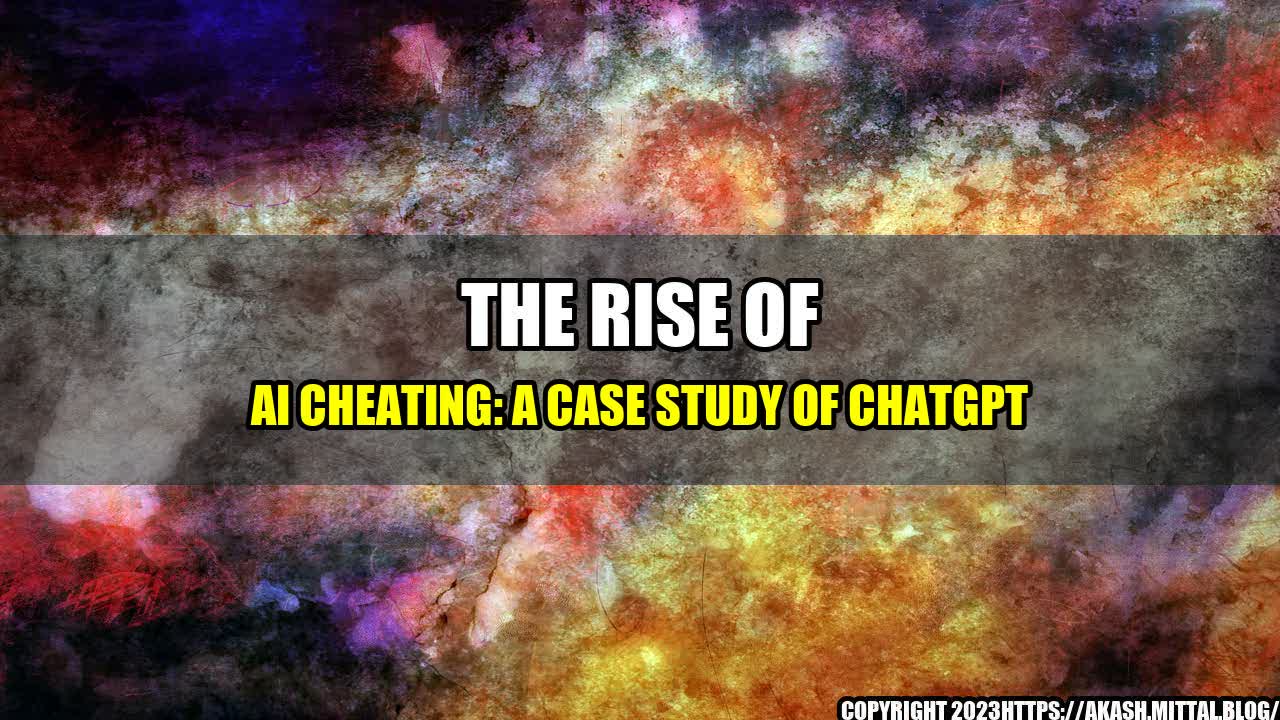
It was just another day in class for John, a freshman at a prestigious university in the UK. He was struggling with an essay assignment on wizard and witches books, but he had a clever way out. He had heard about ChatGPT, an engaging AI bot that could help him write assignments by suggesting content. So he decided to give it a shot.
The results were astounding. John finished his essay in record time with the help of ChatGPT. It was his best work yet, and he felt confident that he would get an A+. However, his excitement was short-lived. His professor had seen the same arguments in an essay that he had read only a few weeks ago. Upon investigation, it was discovered that John had used ChatGPT to write his essay. He was caught and his grades suffered.
John was not alone. In recent years, academic institutions around the world have been grappling with a new challenge - the rise of AI cheating. In this article, we will explore how AI bots like ChatGPT are changing the landscape of academic integrity.
The prevalence of AI cheating is increasing at an alarming rate. According to a recent survey, nearly 31% of college students reported that they had used AI-powered tools for academic assignments. The same survey revealed that over 80% of faculty members had encountered incidents of academic dishonesty in coursework assignments.
The most significant advantage of AI bots such as ChatGPT is that they help students complete assignments with ease. These bots quickly scan through a large amount of data and suggest content that can be used in essays. They can even write complete essays on a given topic, and they are difficult to spot as they generate original sentences by blending several sources. As a result, students who use AI bots are taking shortcuts, and they can easily get away with plagiarism.
The following are a few examples of the rise of AI cheating in academic institutions:
These examples prove that AI cheating is no longer a minor issue in academic institutions. The increasing use of AI bots is altering the traditional methods of teaching and learning. It is crucial to address this issue to preserve the integrity of academic learning.
The rise of AI cheating is not a phenomenon that educators can ignore. Here are three key takeaway points:
By embracing academic integrity and ethical use of AI, we can create an environment that fosters true knowledge management and prepares students for a responsible life beyond their academic institution.
Education, AI, Academic Integrity
#AIcheating #ChatGPT #academicintegrity #plagiarism #university #UK #wizardandwitchesbooks
Curated by Team Akash.Mittal.Blog
Share on Twitter Share on LinkedIn